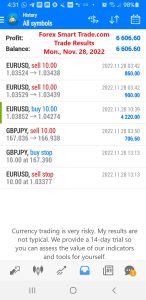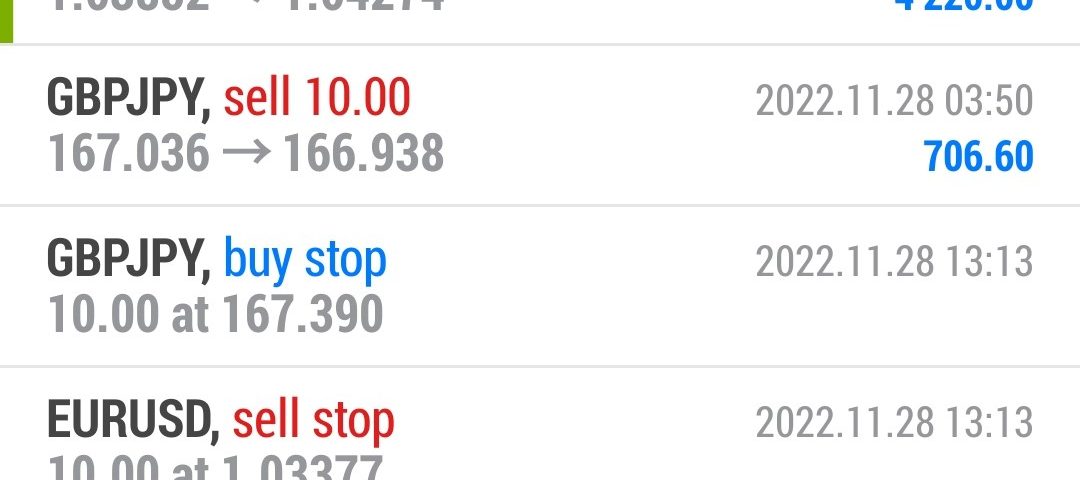Forex Smart Trade Results Monday, Nov. 28, 2022 – $6,606

Forex Smart Trade Results Friday, Nov. 25, 2022 – DAY AFTER THANKSGIVING – NO TRADES
December 4, 2022
Forex Smart Trade Results Tuesday, Nov. 29, 2022 – $6,372
December 4, 2022Your Broker’s Hedging Policy.
What is your broker’s hedging policy?
Ask your broker for a written copy of its hedging policy.
The hedging policy outlines the procedures that it adopts to manage its exposure to market risk.
It also discloses the counterparties with which it transacts to hedge that risk.
By asking for this, it will provide you insight into its hedging procedures.
This will make you better informed to assess the counterparty risk in dealing with your broker.
Remember, if your broker goes bust, your money goes down with it.
We’ve discussed the perils of counterparty risk in detail in the previous lesson.
If your broker doesn’t want to disclose any of these details, it might be a good time to find a broker who will.
The only way a broker should earn your trust is through transparency.
Suspect any broker who isn’t transparent with its hedging policy, which should detail not only its hedging practices but disclose its hedging counterparties (its “liquidity providers”).
Summary
We have explored the basic mechanics of how brokers hedge and manage market risk.
We introduced a number of risk management concepts like “A-Book”, “B-Book” and different variants of “C-Book” that retail FX and CFD trading platforms may use.
Due to the high levels of ambiguity at which brokers tend to operate, we hope we have shed some light on what happens “behind the scenes” regarding how they manage their risk and make money.
Now you know that all retail forex brokers take the opposite side of your trade.
Your broker is the counterparty to ALL of your trades.
When a broker executes your trade, it can:
- Offset your trade internally with another customer’s trade (Internalization)
- Offset your trade externally with a liquidity provider
- If this is done before it confirms your trade, it is known as pre-hedging (STP)
- If this is done after it confirms your trade, it is known as post-hedging (A-Book)
- Not offset at all and accept market risk (B-Book)
- Partially offset your trade externally with a liquidity provider and B-Book the rest (C-Book)
- Offset more than 100% of the risk of your trade externally with a liquidity provider (C-Book)
- Not offset at all and accept market risk and also “reverse hedge” externally with a liquidity provider (C-Book)
Multiple Methods for Managing Risk
While we covered multiple methods used by brokers to manage their risk, it’s important to know that every broker is different and each will adopt their own practices that suit their risk appetite.
Hedging is considered expensive and because brokers want to maximize profits, they prefer to hedge as little as possible.
Risk management practices also continue to evolve and there is no “standard” policy for how brokers manage their risk.
Traders may have some reservations about brokers who B-Book and think they should only trade with brokers who A-Book, but what ultimately matters is accurate pricing and the quality of execution you receive on your orders.

Learn to Day Trade Forex
If you’d like to earn extra income trading on the Forex market, consider learning how to currency trade with Forex Smart Trade. With their super-accurate proprietary trading tools and best-in-the-business, personalized one-on-one training, you’ll be successful. Check out the Forex Smart Trade webinar. It shows one of their trader’s trading and how easy, intuitive, and accurate the tools are. Or try the Forex Smart Trade 14-day introductory trial for just TEN dollars.


